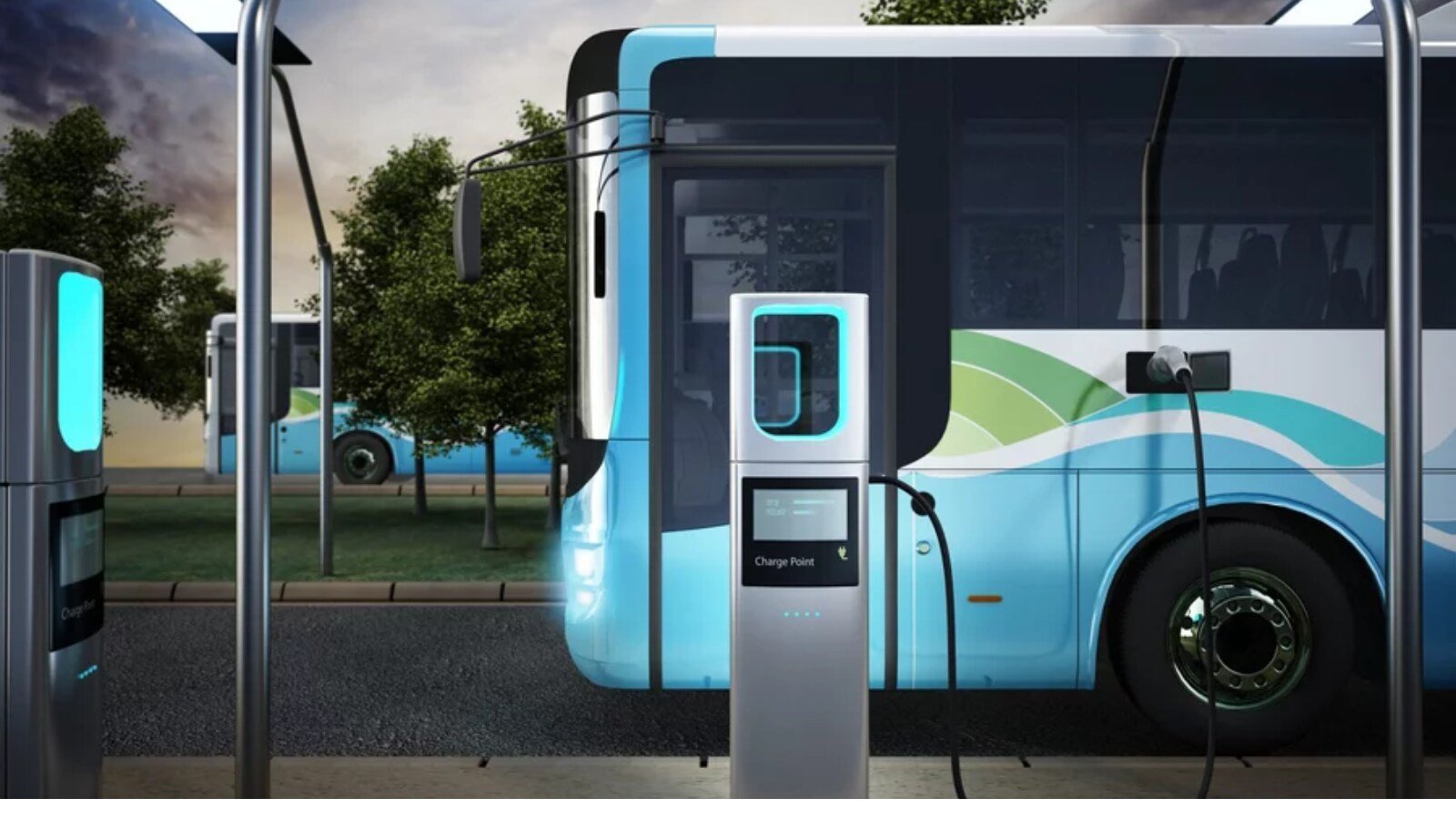Last Updated:June 04, 2025, 09:34 IST
For a country where millions travel long distances daily connecting Tier-2 and Tier-3 cities with major metros the shift from diesel-run buses to electric fleets could help
Electric buses
As India pushes forward with its clean energy goals, the conversation around electric mobility is evolving beyond the confines of cities. While electric two-wheelers and urban EVs have seen encouraging adoption, a quieter but significant transformation is underway on national highways and regional routes: the rise of electric intercity buses.
For a country where millions travel long distances daily connecting Tier-2 and Tier-3 cities with major metros the shift from diesel-run buses to electric fleets could dramatically reduce the carbon footprint of public transport. And the movement is already gaining traction.
“Electric intercity buses can play a transformative role in advancing India’s clean mobility goals beyond cities,” says Rohan Dewan, Co-Founder and CEO, LeafyBus. “As the demand for long-distance travel increases, electric buses offer a sustainable alternative to conventional diesel buses, significantly reducing greenhouse gas emissions and air pollution along national highways and regional routes.”
Unlike private vehicles, electric buses deliver a far lower per-capita emission rate while serving larger passenger volumes, making them a highly efficient clean transport mode. Dewan adds that their adoption isn’t just about lowering emissions, it’s also about infrastructure development. “Deploying electric intercity buses can catalyze the expansion of EV infrastructure beyond metropolitan areas. Building charging stations along highways encourages a robust electric mobility ecosystem, supporting other EV segments and aligning with India’s broader clean energy transition.”
Fleet operators and aggregators are already observing a tangible shift. According to Rohit Sharma, COO, AbhiBus, “Intercity electric buses are emerging as powerful enablers of India’s clean mobility transition beyond metro cities. On AbhiBus, we’re witnessing strong momentum in terms of EV bus bookings, driven by lower operating costs, better passenger comfort, and proactive government support.”
Indeed, EVs bring with them lower fuel and maintenance costs, while their quiet operation and modern interiors appeal to comfort-seeking travelers. Sharma emphasizes that the scaling up of charging infrastructure will be crucial: “As infrastructure grows, intercity EV travel will play a pivotal role in decarbonizing long-distance transport and shaping a greener, quieter future for India.”
Sanjay, CEO, YoloBus, echoes this sentiment while pointing out the environmental toll of current travel habits. “Tens of millions make daily journeys between cities, mostly in diesel-run buses and personal vehicles, contributing considerably to greenhouse gas emissions. We think that electric intercity buses are the ticket to revolutionizing long-distance travel.”
He adds, “A single electric bus can replace dozens of private cars, lowering fuel consumption, traffic, and emissions. As roads replicate across India, the strategic placement of charging and battery-swapping stations can make the mass adoption of electric intercity buses not only viable but scalable.”
For YoloBus, the mission extends beyond environmental goals into passenger experience and national policy. “These futuristic vehicles are poised to provide a safe, comfortable, and green mobility experience, setting a new standard for intercity travel. With zero tailpipe pollution and sophisticated travel technology, our electric fleet advances India’s ‘Make in India’ vision while supporting national sustainability objectives.”
Together, these perspectives paint a compelling picture: intercity electric buses aren’t just a cleaner option, they represent the future of Indian mobility. With the right blend of policy support, infrastructure investment, and public-private collaboration, they could redefine how India travels responsibly, efficiently, and sustainably.

Swati Chaturvedi, a seasoned media and journalism aficionado with over 10 years of expertise, is not just a storyteller; she’s a weaver of wit and wisdom in the digital landscape. As a key figure in News18 Engl…Read More
Swati Chaturvedi, a seasoned media and journalism aficionado with over 10 years of expertise, is not just a storyteller; she’s a weaver of wit and wisdom in the digital landscape. As a key figure in News18 Engl… Read More
- First Published:
#Indias #Long #Road #Green #Intercity #Electric #Buses #Key #Clean #Mobility



